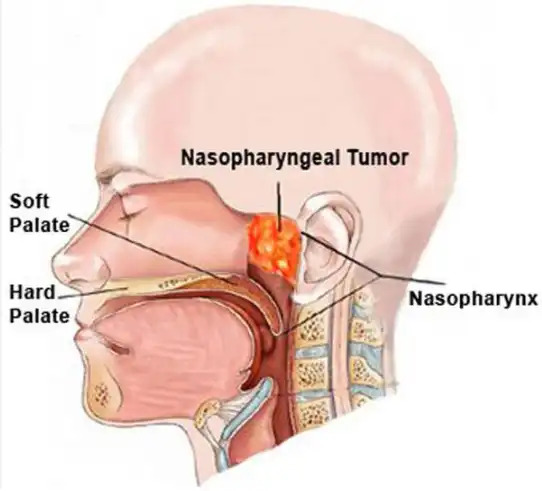Ear, Nose, Throat (ENT) Treatments
ENT doctors specialise in the diagnosis and treatment of diseases of the ears, nose (including sinus) and throat (including voice and speech).They also treat head and neck cancers, and can perform surgical treatment for obstructive sleep apnoea.
Our specialists also have advanced training in various subspecialties such as voice disorder, paediatric ENT, allergies, head and neck cancers, and sleep disorders.
Common conditions we treat include:
- Snoring and obstructive sleep apnea (OSA)
- Head and neck surgery - We evaluate and treat benign and malignant tumours of the head and neck (salivary glands, thyroid gland, parathyroid gland, lymph nodes, tumours of the oral cavity, nasopharynx and larynx)
- Speech and swallowing disorders
- Ear problems such as hearing loss, vertigo, ear infections, tinnitus, and growths such as acoustic neuroma and cholesteatoma
- Nose and sinus disorders such as chronic sinusitis, sinus and nasal tumours, and allergic rhinitis.
- Paediatric ENT – We provide treatment for recurrent tonsillitis, congenital deafness and ear infections
Why Nasopharyngeal Carcinoma Undetected earlier and who are at risks of developing nasopharyngeal
carcinoma?
Nasopharyngeal carcinoma (also known as nose cancer) may not show any symptoms in the early stages due to its
location hence there is delay in diagnosis and treatment. The next thing you know, it may have spread to block your
airway passage and spread to lymph nodes in the neck. Self-awareness and self-observation are crucial to be treated
as soon as possible to increase the chance of a cure and return to quality life.
Nasopharyngeal carcinoma (NPC) originates from nasopharynx (upper part of throat behind the nasal cavity, just above
the roof of mouth). It is a passageway for air to pass from the nose to the throat then finally to lungs.
NPC is the 5th most common cancer in Malaysia. NPC cancer is common among people who live in Southeast Asia, mostly
among people of Chinese ancestry and Bidayuh.
Who are at risks of developing NPC?
- Age: Although NPC can develop in individuals of any age, it is more common in age group
40-60 years old. However, the youngest patient with NPC was reported to be 6 year-old.
- Gender: The risk of men developing NPC is two times more than
women.
- Family history: Having a family member who has NPC may also increase your risk of developing
the same disease.
- Certain dietary habits: Diets high in salts (such as salted fish, fermented or pickled
vegetables), cured fish and meat (such as bacon, ham, sausages) have also been linked to NPC.
- Alcohol and tobacco consumption: Heavy alcohol or tobacco (including cigarettes, cigars, pipes)
use is associated with an increased risk of NPC. Secondary smoking may also increase a person's risk of
developing head and neck cancer. The risk of NPC rises by 1-2% each pack-year of smoking.
- Epstein-Barr virus (EBV) infection: Some nasopharyngeal cancers have been linked to an EBV
infection, however, not everyone who has had EBV infection will develop NPC.
- Occupational exposure: Wood dust, occupational solvents.
The patient usually has no symptoms at early stages, so it is challenging to detect it.
Below are several noteworthy symptoms:
- A lump in the neck (most common symptom): usually painless
- Nasal symptoms: Stuffy nose, frequent nosebleeds
- Trouble hearing or loss of hearing, ringing in the ear (tinnitus), ear fullness/pain
- Frequent headaches
- Blurred vision/double vision
- Fatigue
Screening may be offered for those at higher risk for nasopharyngeal cancer. This includes:
- Nasopharyngoscopy by otorhinolarynologist (ENT): Observing the internal areas of the nose and throat with a
fibre-optic instrument. And biopsy (tissue sample collected from nasopharynx mass) should be obtained to
diagnose NPC if there is suspicious mass.
- Blood tests: To detect the presence of Epstein-Barr virus (EBV IgA and EBV DNA load test).
Currently, there is no test that has the best sensitivity and specificity for nasopharyngeal carcinoma. Therefore, a
combination of tests should be used to rule out NPC in risk groups.
Early-stage nasopharyngeal cancer is more treatable and manageable. Screening can detect the disease before symptoms
appear, significantly improving treatment outcomes. A dedicated multidisciplinary team including
otorhinolaryngologist and oncologist are important to provide care to patients through early screening, diagnosis
and treatment.
Article By Dr Tey Kai Jun.
🔗 Dr Tey Kai Jun




